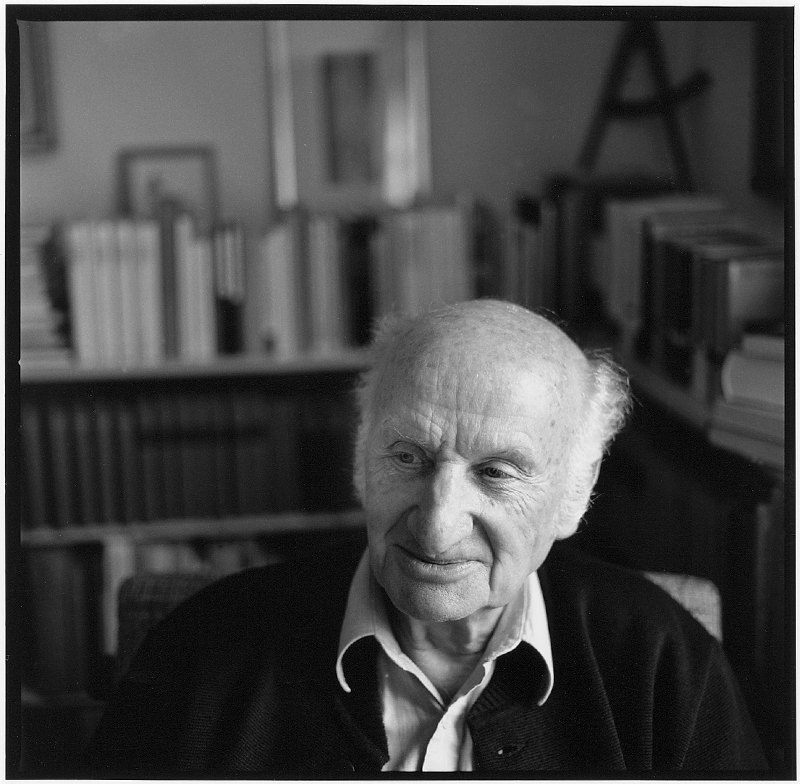Gerhard Meier was born in Niederbipp on 20 June 1917. He broke off his training as a structural engineer and spent 33 years working on the shop floor and as a designer in a lamp factory. At the age of 47 he quit his job and from then on, he lived as a freelance writer. He came to wider public attention after Peter Handke shared his Petrarch Prize with him.
Publishing his first texts in 1964, Meier explored an ever-growing variety of styles as his work progressed. His distinct personal tone is already in evidence in the volume of poetry entitled Das Gras grünt (1964). The prose work Der andere Tag prefigures elements of narrative that will become characteristic of Meier’s novels: a dialogue structure, as well as fluid transitions between observation and memory, reality and fantasy.
Following Der Besuch (1976) and Der schnurgerade Kanal (1977) he embarks on what, over time, becomes the novel trilogy Baur und Bindschädler (1979−1985). It consists of conversations between two friends – or, more precisely, a monologue of memories directed by Baur at the chronicler Bindschädler, who adds his own acute observations of the discussion to what he has heard. Here too, Gerhard Meier remains within his village world, lending it depth and dimension through a series of remembered stories. The novel Land der Winde expands the trilogy into a tetralogy, as Bindschädler visits the grave of the now deceased Baur.
The strongly associative lyric prose has musical qualities, and is based on a limited repertoire of themes on which Meier provides multiple variations throughout his work. Personal experiences are accorded equal prominence with impressions of nature, art, music and literature.
The recipient of accolades including the Petrarch, Fontane and Gottfried Keller prizes, Meier is one of the most celebrated 20th-century Swiss authors writing in German.






